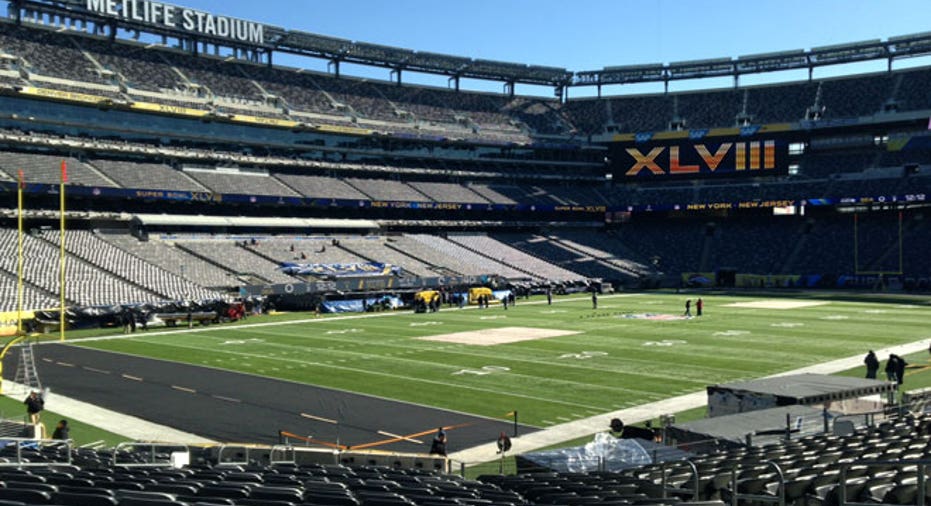New Jersey 'Jock Tax' Tackles Super Bowl Earnings

With the Super Bowl set in New Jersey this year, there’s at least one blitz Peyton Manning won’t be able to avoid. And it’s coming from the state’s Treasury Department.
Players on the Denver Broncos and Seattle Seahawks, who will face off in the NFL title game at MetLife Stadium on Sunday, will be subject to a special tax levied on athletes who visit the Garden State. In fact, every state with a professional sports franchise, with the exception of Texas, Tennessee, Florida, Washington and the District of Columbia, imposes the so-called jock tax.
California devised the tax on out-of-state players when Michael Jordan’s Chicago Bulls played the Los Angeles Lakers in the 1991 NBA Finals. Illinois enacted its own jock tax on Lakers players, calling it “Michael Jordan’s Revenge.”
The complexity of jock taxes across the country make the process for teams and tax professionals “a little bit of an administrative burden, but I guess that’s why it’s a specialized industry,” said Sean Packard, tax director at Interpublic Group’s (NYSE:IPG) Octagon Financial Services.
He added that teams provide players with W2 forms and do a decent job at calculating taxes owed to each state.
For Seahawks and Broncos players visiting New Jersey for this year’s Super Bowl, salaries earned each day they’re in the state are taxed at a rate of 8.97%. Bonuses for winning championships like the Super Bowl are also subject to New Jersey’s jock tax.
Players on the winning side of Super Bowl XLVIII will each receive a bonus of $92,000, while the losing team’s players get $46,000.
Manning, the Broncos quarterback, could be facing the highest tax bill. The 16-year NFL veteran will earn a salary of about $15 million next season, plus his winnings for leading the Broncos through the divisional and conference playoffs in January.
Factoring in the maximum Super Bowl bonus of $92,000 and Denver’s weeklong stay in New Jersey, Manning could owe the state around $60,000 in taxes. That tax bill includes a scheduled visit to MetLife Stadium later this year, when the Broncos play the New York Jets.
The only way Manning can escape from that tax pocket would be to retire, thereby forfeiting his 2014-15 salary. Retiring would bring his New Jersey tax bill for 2014 to roughly $1,000. However, the 37-year-old Manning, who recently broke the single-season record for passing years, is expected to continue playing..
Athletes aren’t the only ones who will be getting a tax bill from New Jersey after the Super Bowl. Trainers, coaches and the officiating crew will also be taxed on a percentage of earnings.
There’s more. Super Bowl rings, which are given to players, coaches and other team personnel, are considered a taxable fringe benefit. According to Packard, the rings are normally valued at $20,000 to $25,000.
The jock tax burden is largely felt by assistant coaches and trainers, who Packard noted can make anywhere from $100,000 to $200,000 and then must hire an accountant to sort out the jock taxes.
“Everyone who travels with the team gets taxed, and they’re the ones who really get hurt,” he said.



















